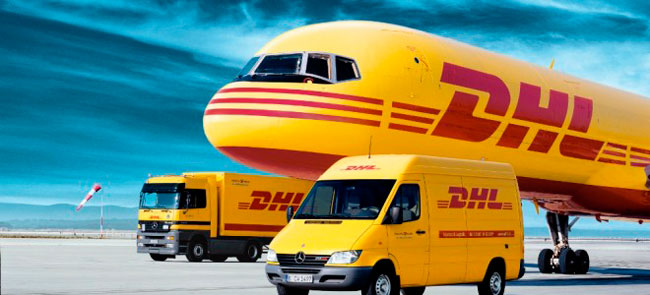DHL Takes Innovative Approach To Grow Retail Footprint in sub-Saharan Africa by 1000%
Staying true to its reputation for speed, passion, teamwork and a can-d attitude. DHL Express has grown its retail footprint in sub-Saharan Africa by an astonishing 1,000% in less than three years.
In what could become a business school case study, the company’s number of service points increased from 300 to over 3,300, not by building its own bricks and mortar branches but by partnering with local business owners who act as DHL resellers. Thousands of vendors – such as an electronics store in West Africa, a travel agent in East Africa and a small grocery shop in Southern Africa – now allow their customers to send DHL shipments alongside their normal offerings.
These small businesses benefit from commission on all DHL sales, an increase in foot traffic as well as being associated with a global brand.
 “It’s really a win-win approach. We having given these small shop owners a unique business opportunity to grow their revenues and gain credibility by aligning themselves with an international brand. If they do well, we do well,” explains Sumesh Rahavendra, head of marketing for DHL Express Sub Saharan Africa.
“It’s really a win-win approach. We having given these small shop owners a unique business opportunity to grow their revenues and gain credibility by aligning themselves with an international brand. If they do well, we do well,” explains Sumesh Rahavendra, head of marketing for DHL Express Sub Saharan Africa.
The company is willing to partner with any entrepreneurial business that sees value in becoming a DHL reseller. All partners are provided with a complete branding kit and go through an extensive training programme to ensure compliance with DHL’s requirements and procedures.
DHL has also forged similar partnerships with larger companies such as mobile network operators, retail business centres, supermarkets and fuel retailers.
Not only is partnering with existing vendors more cost effective than its own branches, it also brings DHL closer to its customers. An entrepreneur in Ghana can send a sample to a client in the US from the same place he picks up his daily newspaper, whereas a mother in Mauritius is now able to ship a birthday gift to her son in France while her car is being filled up at the fuel station.
DHL also simplified its pricing and packaging options to fit in with the needs of its customers as opposed to the other way around. To make people aware of its retail offering, the streets of Africa are often painted yellow and red through tactical advertising campaigns involving dancing, singing and special DHL giveaways.
“Through the passion and energy of our 4,000 employees across sub-Saharan Africa, we have changed the perception that DHL only caters for multinationals and big business. Our retail customers no longer have to sit in traffic to send a document or parcel, but can literally find a DHL service point right around the corner,” says Rahavendra. “Perhaps most gratifying is the fact that we are empowering business owners and aspiring entrepreneurs across Africa with an additional opportunity to earn money and live better.”
He tells the story of a DHL reseller in Kenya whose mobile phone accessories shop is located right opposite a DHL corporate-owned store. When asked why customers would ship with her rather than go to the fully-branded DHL outlet, she said the average person relates much better with her shop, perceiving it to be affordable and less formal than the one across the road.
“In a continent like Africa where the informal economy rules, a company’s retail strategy cannot revolve around high-end shopping malls,” adds Rahavendra. “You have to operate on a level where customers can understand, feel and relate to your product. You really need to ensure that your brand connects to the average person on the street,” concludes Rahavendra.



